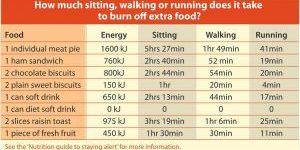Types of mood disorders
Exercise and sleep
Regular exercise can considerably improve the quality and quantity of sleep, as well as, having other benefits to general health and wellbeing. Exercise improves sleep by improving the release and uptake of neurotransmitters in the brain. This provides a positive environment for the brain to function allowing sleep to occur more naturally.There are some considerations……
Is shift work detrimental to health?
There is a body of evidence that supports the statement that shift work can detrimentally impact on health, as well as, other factors that impact on human wellbeing and safety (i.e. alertness, fatigue, cognitive performance). It concludes, “that we have sufficient knowledge to conclude that shift work may indeed have detrimental consequences for health, despite……
What is fatigue amnesia?
Have you ever driven into your driveway at home and on arrival thought to yourself, How did I get here? I cannot recall the trip home or the last part of the trip. You may have suffered from fatigue amnesia. Amnesia, in simple terms, is the loss of memory. Fatigue amnesia is where a person……
10 nutrition tips to beat fatigue
Eat breakfast based on breads, cereals low fat dairy and fruit. Pack a lunchbox with snack including at least 2 pieces of fruit. Portion dinner plate correctly with half the plate coloured vegetables, ¼ the plate potato, rice, pasta or bread; and palm size portion of meat. Eat to be comfortably satisfied not full to……
Managing stress and Fatigue
Stress is something that has been with us for a long time. Even though the cause of our stress has changed, the response in the mind and body has remained the same. When stressed or in danger, the body engages its “fight or flight” response. This response evolved in ancient times when stressors were often……
What factors increase the risk of a fatigue-related incident?
The following factors have been found to increase the risk of fatigue-related incidents (e.g. lane crossings) and accidents By planning your journey more carefully, you are more likely to stay fresh and vigilant at the wheel, safeguarding your own safety and the safety of others. The strategies outlined in the Journey Planning Guiding Principles document……
Types of mood disorders
Mental health can generally can be seperated into three categories: stress, anxiety, and depression and can all directly or indirectly increase the risk of fatigue. They are all common and treatable illnesses. Approximately 1 in 4 people will suffer from a mental illness throughout their lifetime. So it is likely that you or someone you……
Body weight & fatigue
EXCESS BODY FAT INCREASES THE LIKELIHOOD OF SOMEONE GETTING FATIGUED Imagine walking around all day with a backpack on containing a 10 kg brick. Wouldn’t you feel more tired at the end of the day? Well, body fat is “excess weight” you simply have to carry around. The more you have to carry, the more……
An introduction to sleep
Sleep is common throughout the animal kingdom. We do know there is still a lot to be leaned about sleep, despite considerable research. All animals require sleep and no permanent non sleeping species exists. Even plants and bacteria have a regular period of rest and inactivity. Humans spend one-third of their lives sleeping. Far from……
Smoking and sleep
Nicotine can hamper a person’s ability to fall asleep or get good quality sleep. Studies have shown that the average smoker gets 30 minutes less sleep compared to non-smokers. Trouble getting to sleep after a cigarette is likely due to the stimulatory effect of nicotine. Nicotine withdrawal during later sleep periods may also affect sleep……










